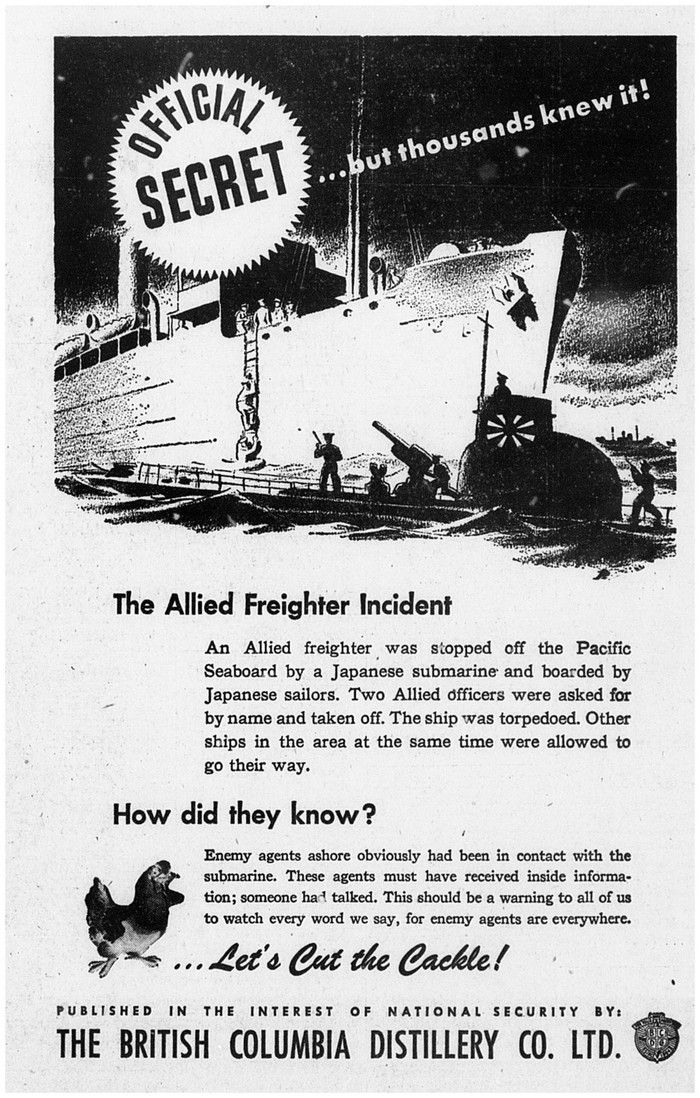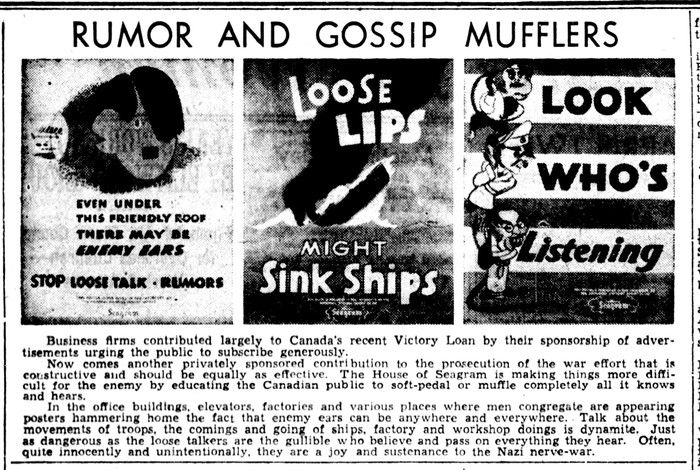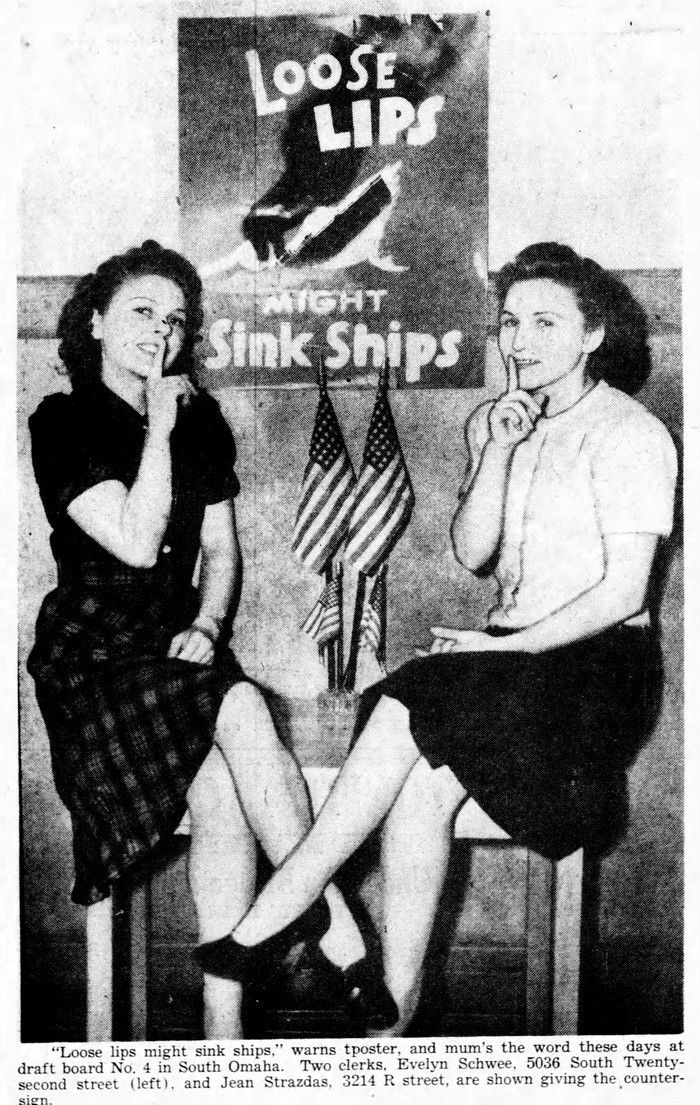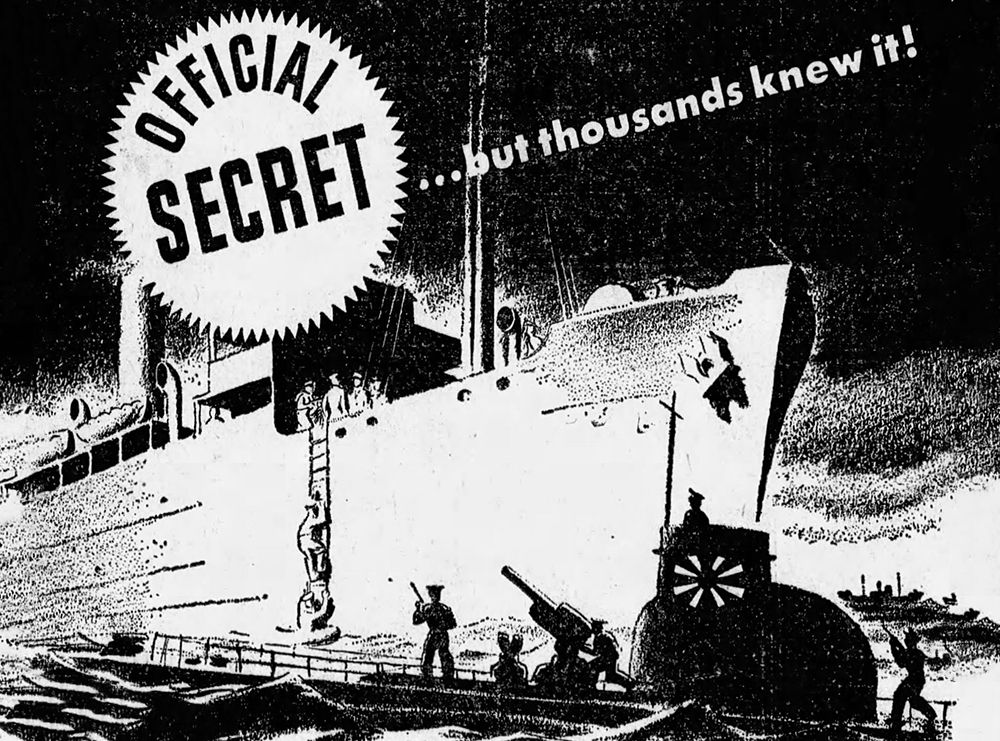
Many Canadian companies ran patriotic ads during the Second World War. But you’d be hard-pressed to find a better slogan or more dynamic ads than the “Let’s Cut the Cackle!” campaign by the B.C. Distillery.
The gist of the campaign was if you knew a secret about Canada’s war effort, you should keep your yap shut, lest it be turned against the Allied forces by Germany or Japan.
On Oct. 13, 1944, both The Vancouver Sun and Province featured a big ad about “The Allied Freighter Incident.”
“An Allied freighter was stopped off the Pacific Seaboard by a Japanese submarine and boarded by Japanese sailors,” it read. “Two Allied officers were asked for by name and taken off. The ship was torpedoed.”
The ad then asked, “How did they know?”
“Enemy agents ashore obviously had been in contact with the submarine. These agents must have received inside information; someone had talked. This should be a warning to all of us to watch every word we say, for enemy agents are everywhere.”
Underneath an angry rooster crowed, “Let’s Cut The Cackle!”
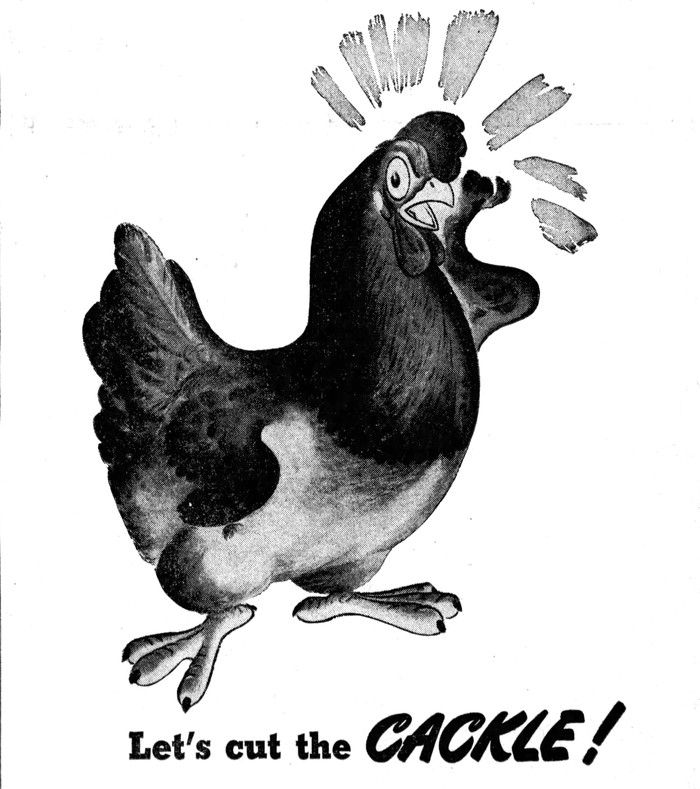
The ad was illustrated with a drawing of the freighter with the Japanese submarine alongside, its deck guns aimed at the freighter’s crew. The illustration is stamped “Official Secret,” but has the tag line “ … but thousands knew it!”
The Cut the Cackle ads were probably inspired by a famous campaign by Seagram’s of Montreal, “Loose Lips Might Sink Ships.” The Loose Lips poster featured a ship that had been torpedoed and was sinking.
The Seagram’s campaign began in the spring of 1942. It featured two other ads, “Even under this friendly roof there may be enemy ears” and “Look who’s Listening.”
“Friendly roof” featured a stylized illustration of Adolf Hitler, “Look who’s listening” had cartoons of Italian dictator Mussolini, Germany’s Hitler and Japan’s Emperor Hirohito.
The Cut The Cackle campaign appeared from 1943 through 1945. It ran throughout B.C., from the Sun and Province in Vancouver to smaller papers like the Nanaimo Free Press, Chilliwack Progress and Grand Fork Gazette.
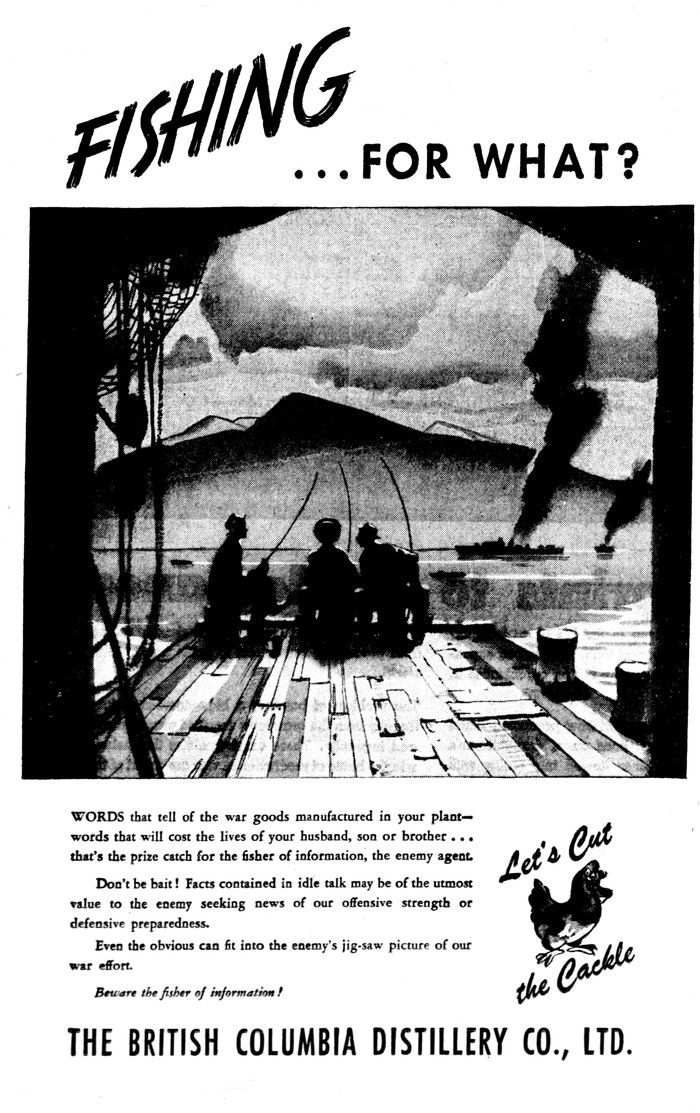
One of the most interesting Cackle ads is titled “Fishing … For What?”
It showed three workers fishing in what appears to be Burrard Inlet, and the warning “words that tell of the war goods manufactured in your plant — words that will cost the lives of your husband, son or brother … that’s the prize catch for the fisher of information, the enemy agent.”
“The Australian Airmen Incident” ad featured civilians greeting Australian airmen at the train station, which was supposed be an “official secret … but somebody talked!”
“No newspaper had carried a line about these Australians. Security Officers had taken every precaution to keep the information secret. But well-meaning relatives, having inside information, have talked out of turn.”
Another ad was about “a celebrity’s unheralded return” from the Hawaiian Islands via the Aleutians and the west coast of British Columbia.” It was an official secret, but “some 20 hours before the convoy was due to pass, people were collecting along the shore” to see the “world famed personality.”
How? “The information could only have been leaked out through the indiscreet communication of apparently unimportant scraps of news by otherwise conscientious and patriotic Canadians.
“The result, if enemy agents had been able to take action, could have been a disaster of the first magnitude!”
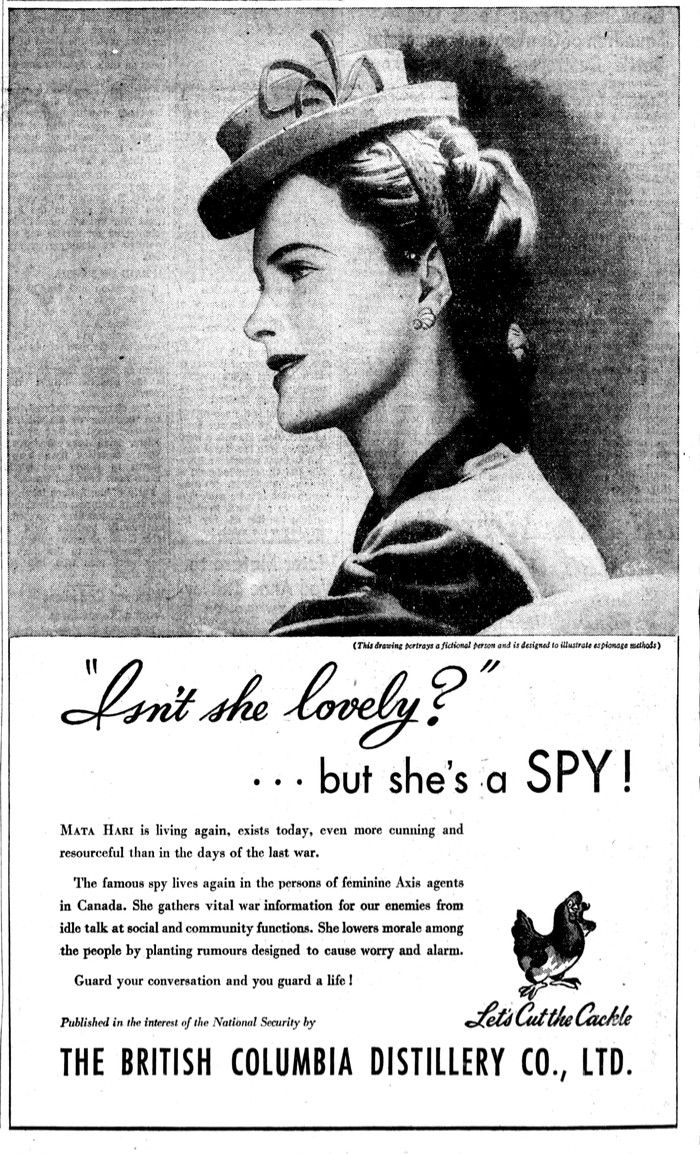
Another ad showed a beautiful woman, along with the line “Isn’t she lovely? But she’s a SPY!”
“Mata Hari is living again, exists today, even more cunning and resourceful than in the days of the last war. The famous spy lives again in the persons of feminine Axis agents in Canada.
“She gathers vital war information for our enemies from idle talk at social and community functions. She lowers morale among the people by planting rumours designed to cause worry and alarm.
“Guard your conversation and you guard a life!”
The Seagram’s ads were produced as full-colour posters in Canada and the United States, and can be found in the Canadian War Museum. But it’s unknown if any of the Let’s Cut the Cackle! newspaper ads were issued as posters — they may have only been newspaper ads.
